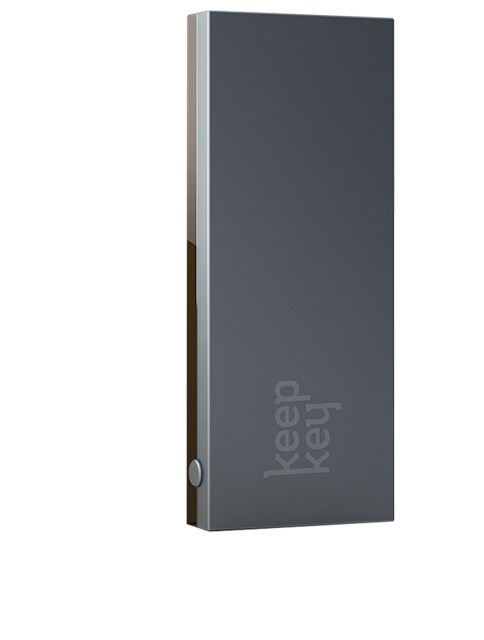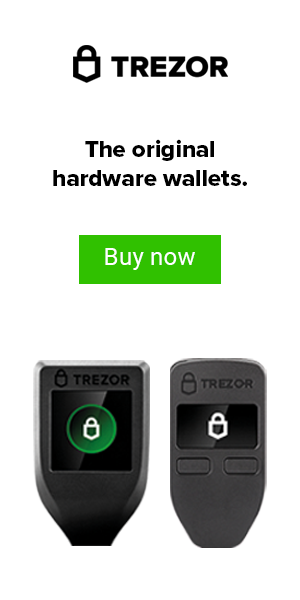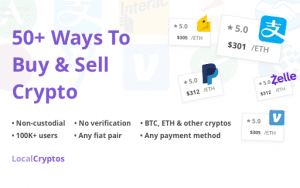Why Bitcoin Is The Ultimate Expression Of Freedom
In this article, I will prove why bitcoin is the ultimate expression of freedom. Most of us remember the financial crisis of 2008 pretty vividly. We saw the forefront of corruption come home and face reality when they couldn’t hide the truth anymore, and the banks weren’t the ones that paid the price. We did.
And to add insult to injury, once the government made the decision to bail out the banks, they took that freshly printed money and paid themselves all bonuses. Also, no one went to jail for these egregious crimes. There were virtually no consequences to their actions, so what’s to stop them from doing it all over again in a sneakier way or by way of a new mechanism? 

ENTER BITCOIN’S CREATOR…
Whoever Satoshi Nakatmoto is saw this happening before we all did, and as a result, invented one of the most powerful tools the world has ever seen.
It was during this time that I believe Satoshi Nakamoto saw the writing on the wall and knew that what was happening on wall street and the large banks was unsustainable. We needed a solution that could not be corrupted, interfered with, or otherwise controlled by the “Authorities” in power.
On October 31st 2008, The Satoshi White Paper; A Peer-To-Peer Electronic Cash System was released to an small inner circle of cryptographers on a mailing list that Satoshi had kept note of. The initial reactions were mixed, but mainly filled with excitement, and some naysayers that said it could never work. They cited numerous examples of previous ventures that came close and failed, such as BitGold and eCash. 

But bitcoin was different because it solved the “double spend” problem and created an elegant solution for verifying transactions in a decentralized way; he called this the “Blockchain“. In case you are unfamiliar, the blockchain is a public ledger that includes a batch of transactions that are all batched together in a “block” to be verified with hashing power of several computers to solve a mathematical problem.
This offered a financial incentive in the form of a “block reward” where the first computer (or group of computers) solved the puzzle to receive a payout of bitcoin for each block. At the start when the first blocked was mined in 2009, the reward was 50 bitcoins and was scheduled to be cut in half every four years until the 21 million supply cap runs out in the year 2140.
The overall concept presented a solution that no one had been able to crack before, successfully. It came very close in some other instances but Satoshi was able to create a fair, completely decentralized way that incentivized people to be honest, fair, and created a new economic model that was built on a deflationary mechanism. This is brilliant, because it’s the way Austrian economic legends like Von Mises and Murray Rothbard saw the ideal way for the economy to be a free and fair model. Free markets let the people decide where and how money was used, instead of the government.
WHY BITCOIN IS DIFFERENT?
Bitcoin is the ultimate expression of freedom. It is built on the principle that no governing body or power can dictate (through politics) when money should be printed and what it can be used for, but rather what the people vote on with their hashing power. This was laid out with an agreed set of very general rules and procedures that Satoshi created as a foundation. Now, people any where in the world at any moment can transact freely with bitcoin.
One of the world’s current problems is that there are approximately 1.7 billion people that are currently “unbanked”. That means they do not have access to any financial services because it is either not profitable for banks to be in their area, or they live in an authoritarian country where all finances are regulated and reported on how/when they use it. This is especially prevalent in countries like Venezuela where the bolivar went into hyperinflation and people had to stand in line, for sometimes days, to receive rations for food and medicine. 

Think about how powerful it is that when it comes to bitcoin, you do NOT need to provide your name, your phone number, your social security number, your ID, or any other identifying information to transact with someone. You do not need permission from a government or a bank. You do not need anything except for an internet connection. That is extremely powerful and there is nothing else like it.
Venmo, for instance, has at least 3 to 4 intermediaries that is getting tracked before you can transfer from person A to person B, even if they are standing right in front of you. Additionally, if they decide to decline the transaction for any reason they see fit, you’re out of luck. You’d need to hop on the phone with a bank or another 3rd party to send YOUR money. They can censor any transaction at any time for any reason. Bitcoin is permission-less finance. You have the power to not only create your own bank account, but become your very own bank. This is why bitcoin is the ultimate expression of freedom.
CONCLUSION
In conclusion, since the beginning of civilization money has always been an expression of what you wanted or how you were feeling. What you wanted and needed, and how you communicated and expressed your needs and desires. Back then, it could’ve been anything from seashells and beads all the way to rare metals or statues. The type of medium didn’t really matter, it was something everyone in the ecosystem all agreed had value and thus, it was considered money. Bitcoin is an innovation that has limitless potential and it doesn’t start and end it peer-to-peer digital cash. 

This is programmable unit of account and value. You can create automated smart contracts, you can encrypt private messages, you can even review and look at every transaction on the pseudonymous ledger of the blockchain for eternity. The applications are limitless, but most importantly, it is unequivocally, incorruptable. Once a transaction is completed, it cannot be erased or undone.
This is extremely powerful and takes away the human element of temptation or control. It’s a consensus-based algorithm and the truest form of democracy the world has ever seen. I am so grateful that this technology has come into existence in my lifetime and can pave a way for a new future for generations to come. The only limit of what this technology can do is only limited by our imaginations.
If you have any questions or comments on this post, please sound off below! I’d love to hear from you! Until next time…
Cheers,
The Crypto Renegade
NOTE: This post may contain affiliate links. This adds no cost to you but it helps me focus on giving as much value as possible in every single post by being compensated for recommending products that help people succeed.














